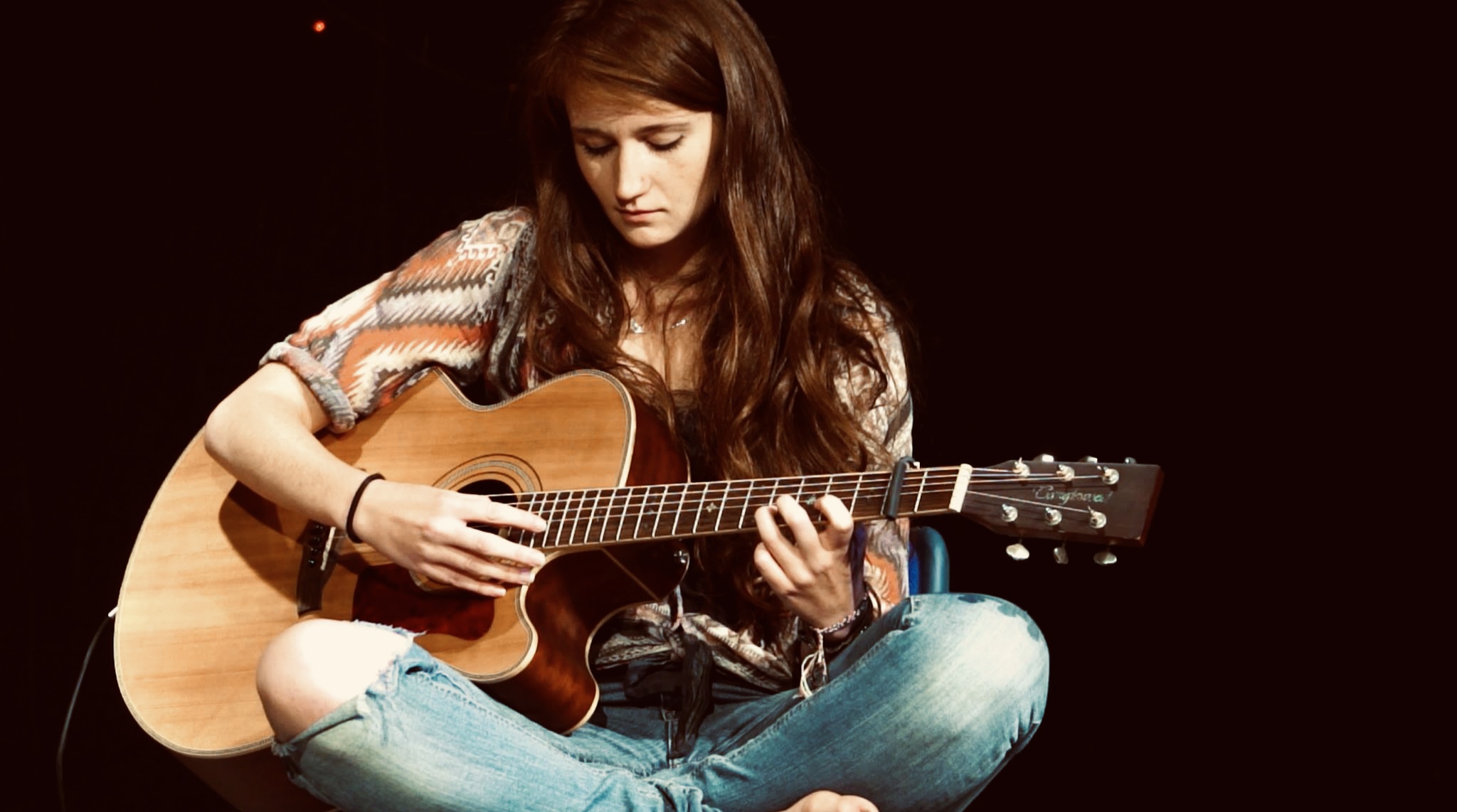Bush's Gavin Rossdale on the 10 albums that changed his life, spending time with Prince and being inspired by PJ Harvey to buy Joe Walsh's Jazzmaster
"All these records I’m talking about, I know them back to front"
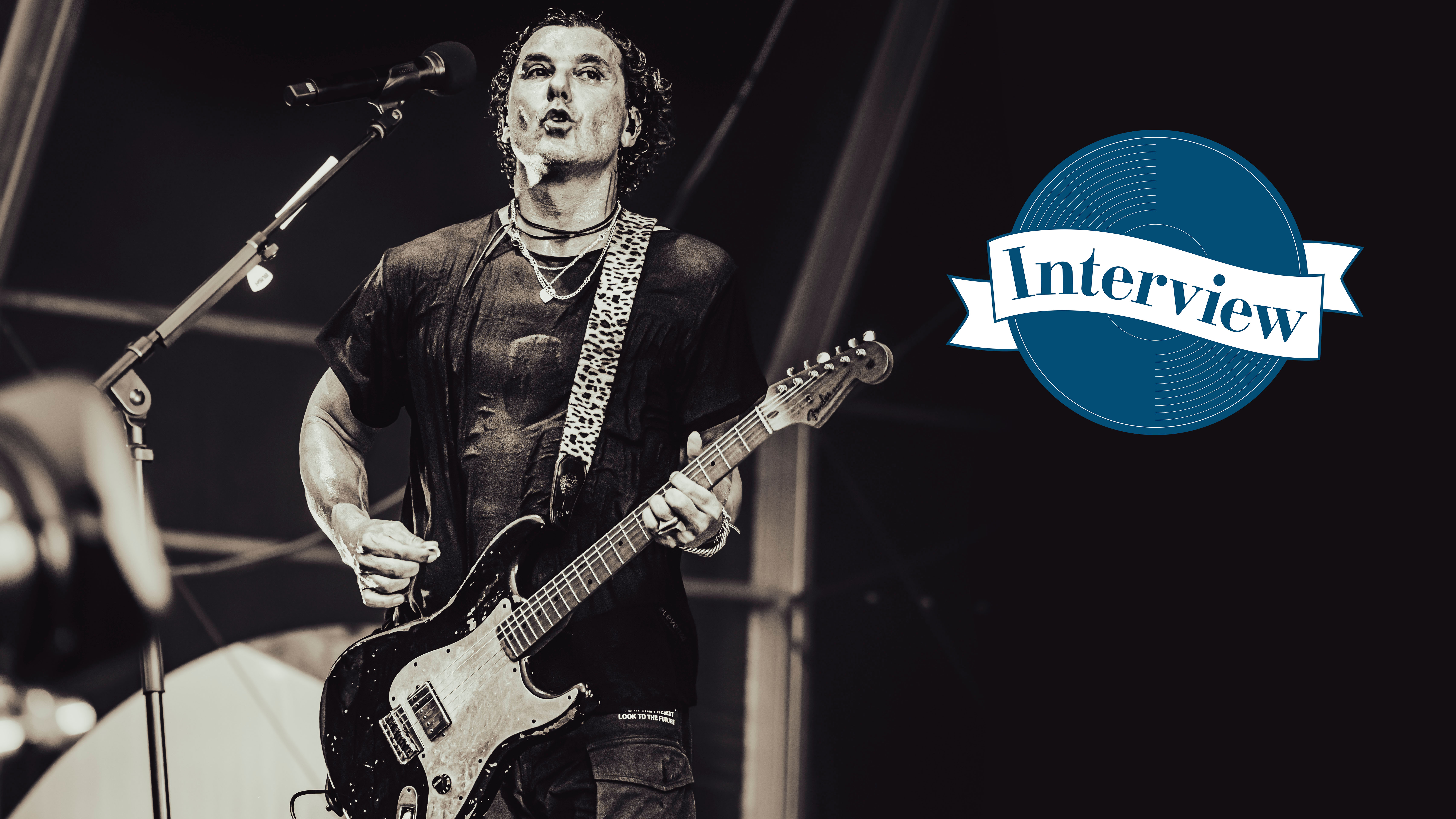
Want all the hottest music and gear news, reviews, deals, features and more, direct to your inbox? Sign up here.
You are now subscribed
Your newsletter sign-up was successful
As Bush return with their ninth album The Art of Survival, we thought it the perfect time to catch up with British frontman/guitarist, Gavin Rossdale, and take a look back at the albums that set his aspiring young musical mind ablaze, sending him head first onto a path that would lead to Bush becoming the UK’s biggest grunge export in the 1990s and beyond.
Now, almost three decades, one breakup and one reunion since the release of their debut, Sixteen Stone, and The Art of Survival finds Rossdale and his bandmates in an altogether different headspace. “It’s funny because people sometimes say: ‘Oh, it sounds like Bush is back better than ever - like back to the beginning,’" explains Rossdale. "Musically it’s completely different.”
Music is so magical and bizarre
Lyrically, The Art of Survival explores themes of women’s autonomy (or lack thereof) over their bodies, planetary destruction, human resilience and the move towards A.I. - all powered by a glut of gutsy riffs, hypnotic grooves and plenty of earwormy toplines. It’s a record that Rossdale describes as “super genuine, honest and with a vital energy.”
A self-confessed “needy singer,” we find the Bush frontman – who is three shows away from completing a mammoth US tour stint alongside Alice In Chains and Breaking Benjamin at the time of our conversation – in a reflective mood. “It’s a weird job,” he says. “Why do I choose to think about things I want to complain about or celebrate or challenge and put it to music? People in the crowd want to hear me do this, then do that and then everyone feels satisfied. It’s a really funny, weird exchange. Music is so magical and bizarre. Why would you put yourself out there and put yourself on the line when all you want is to be accepted and appreciated?”
In the case of The Art Of Survival, it was the shared global experience of the Covid-19 outbreak that supplied Rossdale with much of the inspiration required to spur him into action. “The pandemic just knocked everyone upside down, everyone’s all over the shop. Nothing has ever happened in my lifetime that was so seismic and affected everyone,” he explains.
“What you get from that is that it affects everybody deeply in a million ways. There’s something so incredible about seeing a collection of people - as I have done on this tour - and that power of people to just deal with their own shit, however hard it was, and get through it. Everyone has this story, and there’s this common sense of survival, outside the tragedy of all the people that died. There’s this trail of survivors, and every night I see them out there and think: ‘Wow, we all got through that.’ It’s such a potent thing.”
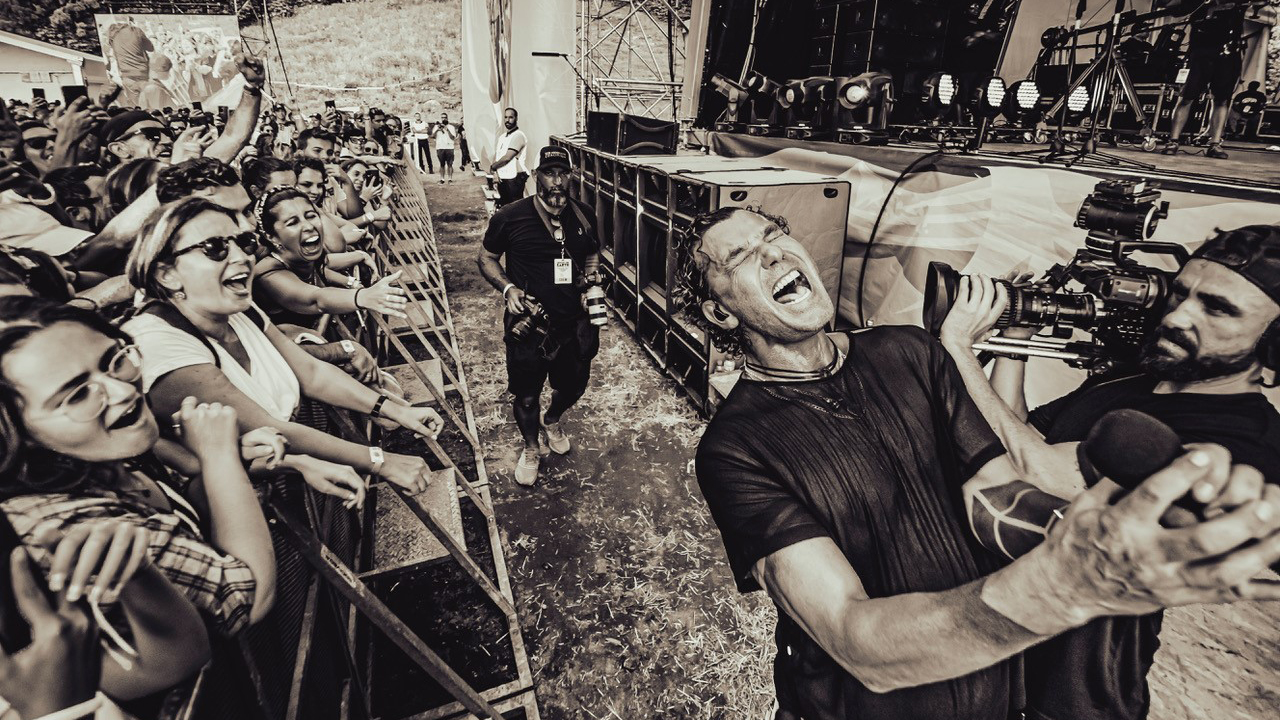
As the tour burns to a close, Rossdale describes the “last days of school” vibe on the tour bus and the camaraderie that has formed between the bands - something that would have been unimaginable in the depths of the pandemic. “I’m gutted to finish that,” he says, having guested twice with Alice In Chains for performances of Man In The Box, and having invited Jerry Cantrell to join Bush on stage for performances of their Sixteen Stone classic Comedown, too. “Yet every day I now have the chance to talk about this new record. It’s a good confluence of things and one dovetails into the other.”
Want all the hottest music and gear news, reviews, deals, features and more, direct to your inbox? Sign up here.
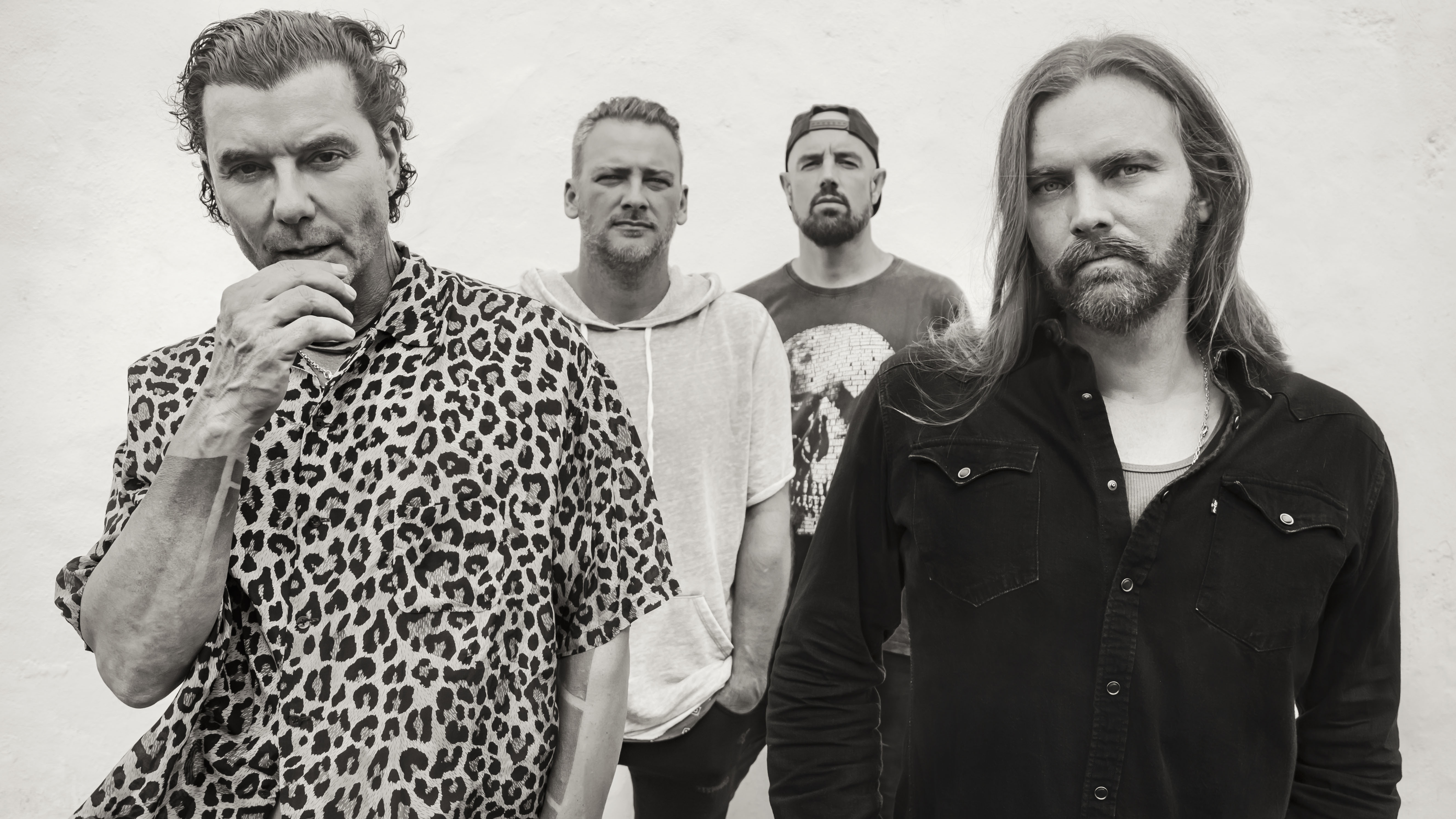
Just before embarking on our journey through the albums that have deeply affected him, we ask Rossdale what he hopes his own listeners might take away from The Art Of Survival. The answer is simple: "It really is all about the ability to live in a rich, full, satisfied way where you get the most out of life because everybody has been through so much. We’re lucky to be here.”
Without further ado, it’s time for the guided tour through Rossdale’s stylistically omnivorous youth with this collection of 10 exceptional albums that changed his life.
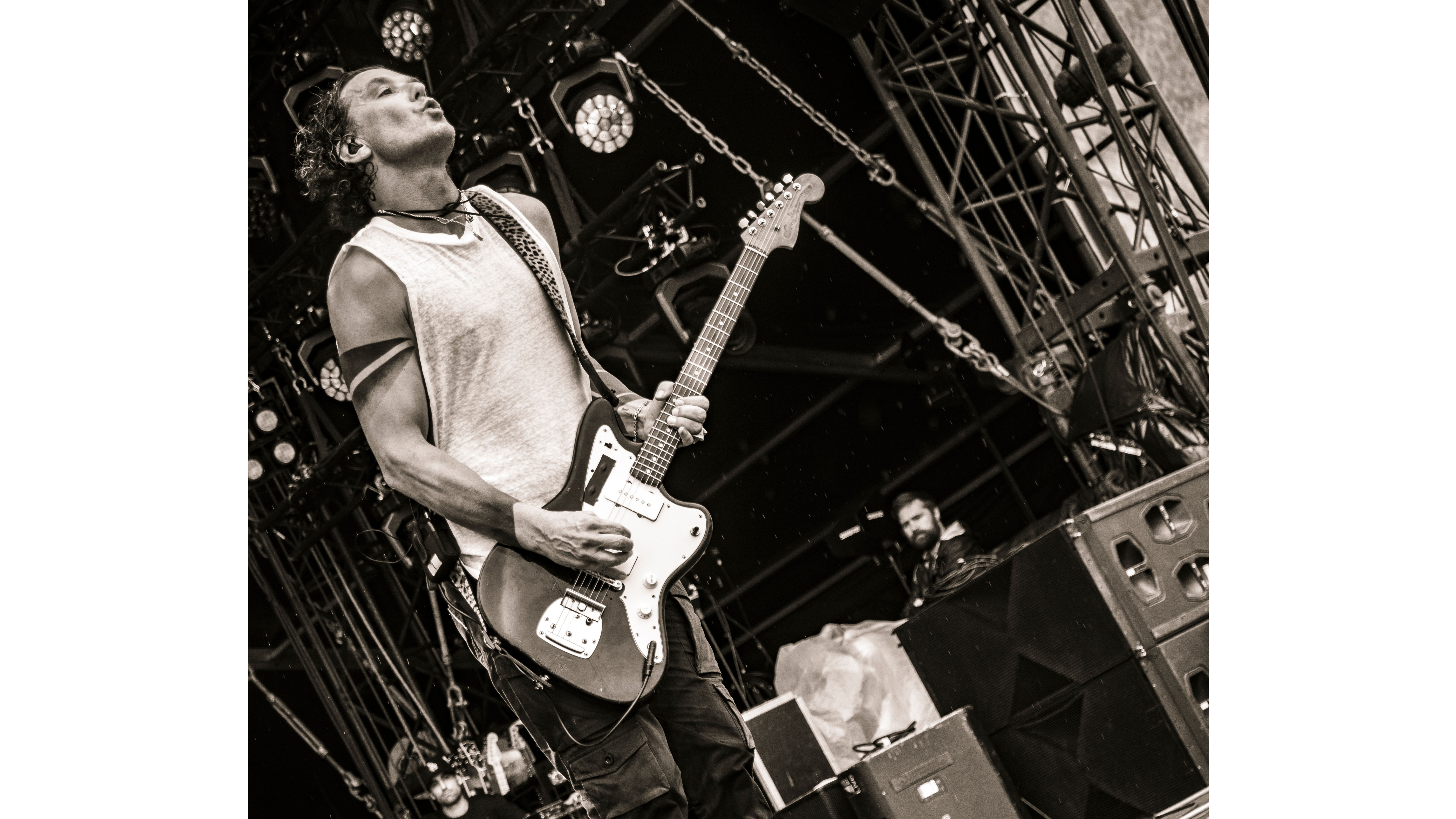
1. X-Ray Spex - Germ Free Adolescents (1978)
"I was really lucky. I grew up just by a record shop called Manzi’s on the Finchley Road in North London. It was very Malcolm Gladwell, extremely ‘10,000 Hours’ because it was all about having the exposure. I was around 12 years old - I grew up with my dad - and I’d get money for doing jobs like washing his car and doing the washing up. So, I’d go up the road to this record shop and get all the singles and they’d lead me different ways.
"Obviously there was the Sex Pistols, but I’ve spoken about that a lot in my life. I really liked this record because I loved punk, but I was a bit weak and I really liked the melody. Sometimes it was a bit abrasive and I wasn’t ready for it but somehow, with X-Ray Spex, the lyrics and their melodies were brilliantly progressive. This was in the ‘70s and genetic engineering was in there! Obviously, there was the whole DIY thing and the idea that punk’s just three chords and the truth, but this was crafted songwriting to me. It was a little bit of a respite.
"I began with a few records that shaped who I was when I was first ever hearing music. Now, anything that Warren Ellis does is immediately a big influence on me, and Nick Cave or Bjork. But they didn’t form me. Being really honest about what formed me, there was X-Ray Spex."
2. Bob Marley & The Wailers - Survival (1979)
"The one Bob Marley record we had was Survival. I had the singles. I had Jamming with the b-side Punky Reggae Party. When we were kids, my best friends were in West London and there were all the big sound systems. You’d go to Notting Hill Carnival and there was this whole dancehall side of things.
"I was thinking about lots of Lee 'Scratch' Perry records, but I’ve gone with Bob Marley because when we’d go to dances at youth clubs, it was that cliché where you’d boycott the dancefloor whenever anything poppy was played. If they played a punk song or any reggae you could go up, ask someone to dance and go have a laugh. But whoah! If the Bee Gees came on or ELO you had to step back from the dancefloor.
"So, getting into reggae music was big, and that was the first whole record I had, Bob Marley’s Survival.
3. Public Image Ltd - Metal Box (1979)
"Punk had sort of died in its first incarnation, and it was all about post-punk and Joy Division and New Order. Public Image Ltd came in – and I have the metal box [that the album was originally packaged in] – and listening to that album really forced me to think about how I was meant to listen to music because it was much more elongated.
Dancehall bass is something I continue to use in Bush
"There were these long songs that weren’t rushing to get anywhere and this strange squeaking, squawling guitar, and Jah Wobble doing the dubby bass that completely reflected all the dub basslines that I’d grown up hearing on all the sound systems. They were everywhere you went in West London.
"Dancehall bass is something I continue to use in Bush. When I write basslines, all I’m thinking about is dub."
4. PJ Harvey - Rid Of Me (1993)
"Rid Of Me is just a groundbreaking record from a groundbreaking artist. It’s that effortless excellence that she’s continued to reap. You know, she wrote that record in two weeks and recorded it with one of my favourite engineers of my entire life, Steve Albini.
I’ve always been too intimidated to go and say hello
"The earthiness of it, and the truth of it are just fucking too good, and I’ve always been in awe of her. I’ve stayed friends with Steve because we worked on a record together – Razorblade Suitcase – and I’ve stayed friends with him for 25 or 20,000 years. I’ve been at two Shellac [the band Albini plays in with Bob Weston and Todd Trainer] shows where she’s been there backstage. A Shellac show backstage is very low key – it’s as low key as a club. It’s not Guns N’ Roses! So, there’s like 20 people back there, but I’ve always been too intimidated to go and say hello. Then always, whenever she’s left, I’ve been like, “Fuck!” It’s so annoying. It’s happened twice now.
"When she was touring her first record, Dry, I saw her at Finsbury Park. She sounded so good on her guitar, and I knew nothing about good guitar sounds – I was a terrible guitar player then and I’m not that much better now – but she was playing a Jazzmaster and I loved it. I went the next day to buy my first proper guitar and that was a Jazzmaster, basically because she was playing one. So she inspired that. It’s one of my best guitars. It was Joe Walsh’s guitar. My kids are under clear instructions that when I die – after they’ve mourned me for a week – to go and sell that bad boy with proof of authenticity from Joe Walsh and they can have a good slap-up vacation!"
5. Fugazi - Steady Diet Of Nothing (1991)
"I’ve chosen this because of what Fugazi stand for, how they sound and their approach. Again, there’s a lot of dancehall feel in the basslines and I love that. It talks to me through a dancehall and reggae backdrop. But it’s also just the honour of that band. They’re complete non-sellouts.
"Did you get the Rolex commercial? Do you fly private? That’s all people give a shit about now - and putting it on Instagram. When we were coming up, that was frowned upon. Just not travelling in economy was frowned upon. Sharing a room with a crew member at the Best Western was as fancy as you needed to be, you know?
"It ran through Shellac, and The Jesus Lizard and all those bands that come from that American hardcore scene that I really love. So, Fugazi stand for something honourable and pure in a world of whores."
6. Prince - Purple Rain (1984)
I was lucky enough to meet him and spend a bit of time with him. He was fantastic to be around and weirdly normal
"The word ‘genius’ is used probably too often, but in this case, it really fits the bill. Purple Rain changed music, it changed culture and I was lucky enough to meet him and spend a bit of time with him. He was fantastic to be around and weirdly normal. You know when people are weirdly normal? They’re not normal at all, but he was just coherent, super-articulate, super-focused, generous in conversation, open and collaborative to talk to. Then every now and again I’d be like, “F**k me, it’s Prince!”
"Anyway, that record was brilliant. I remember when I saw it and I was trying to be a musician and we were going out every night. We were at The Limelight and he would come and wreak havoc on London while playing something like 10 nights at Earl’s Court. Every night, there’d be a different private party where he’d play again. We were just kids and had no access to that kind of brilliant nightlife, so we never got invited. The clubs would be shut down because he’d go in.
"But that record was just top to bottom brilliance. All these records I’m talking about, I know them back to front. That record is just in my DNA."
7. Bob Dylan - Desire (1976)
"Desire is a classic. It’s so sad that ‘Isis’ as we now know it is the name of a terrorist organisation because that is a great song. If I’d had the opportunity, I would have called someone near me ‘Isis’. It’s such a beautiful name. Imagine being called Isis now!
"Anyway, with Bob Dylan, I don’t know the chronology. There’s Blood On The Tracks, there’s Oh Mercy – there’s so many albums of his. I’ve never been the sort of audiophile that knows every record, all the tracks, when they came out and the chronology. I ain’t got time for that. I’ve just never had time for that. It’s just about getting someone’s work and getting maybe two or three of their records, enjoying those and wearing them out. Desire was the Dylan record that I really loved through and through.
8. U2 - The Joshua Tree (1987)
"I have to put in U2 with The Joshua Tree because I don’t know why people can be annoyed at Bono. People get annoyed at Bono, but he's just incredible. That record was a beautiful cultural milestone. I remember it being on the cover of Melody Maker, NME – it just was everything.
U2 just spoke to my spirit and I got so much inspiration from them
"That record was career-defining for them. I think it came after the Live Aid thing, so it was their next big opportunity either to be the greatest band ever or to not. After Live Aid, it was like, Queen: 1 - U2: 1. They were the two bands that were the takeaway for me as a kid watching them.
"I love Queen – they’re an incredible band – but U2 just spoke to my spirit and I got so much inspiration from them. I probably never gave them enough credit over the years because, in a weird way, you don’t always realise it yourself – the effect that someone has on you – until you sit square and look at it or go back and listen to that record, and it’s a phenomenal one.
"That record is very important to me, as is that band and those people. I’ve supported them on tour with one of my bands, I’ve been lucky enough to spend time with them socially, I’ve stayed at their houses and been around them a lot. I owe them a great debt of fun and inspiration.
"I also have to mention The Edge. Anyone who is that singular, and who can carve their own lane. His sound is unmistakable. How refreshing for it to have its own universe."
The Clash - The Clash (1977)
"These are the songs of my youth. In fact, my original band members were so obsessed with The Clash that it kind of squashed me out of The Clash. They took my love of The Clash and added it to theirs, and I sort of couldn’t love them as much as they loved them. They kind of drained the love out of them and I had to replace them with the Sex Pistols.
"It really used to be the Sex Pistols or The Clash, but I loved them both. I preferred The Clash’s first record to the second, Give ‘Em Enough Rope, with Tommy Gun on it. It went somewhere that I didn’t like as much.
"You know when people tell you they love a band? Nothing means anything unless you look at the number of times you’ve played it. That’s the way you know what you love."
Nick Cave and The Bad Seeds - The Boatman's Call (1997)
"When you write (Are You) The One That I’ve Been Waiting For? or Into My Arms, it’s over. They’re just too damn good. There are lots of records that have been really important to me, but they don’t have those two songs on there.
"Nick Cave is too good, too prolific, too interesting and too brave to not be here. I’m bored of mentioning him, to be honest. It’s boring because I always mention him, but with these lists, it’s essential to be as honest as possible and it’s the same with this new record, The Art Of Survival.
"It’s not necessarily that people would lie, or that I’ve lied in the past, but sometimes it’s like acting. Is it putting on a mask or taking off a mask? When you write, do you try and think of a good line, or do you get out of the way of yourself and just really try and tap into your neuroses and see what’s jarring? You know, like when a dentist touches a fucking nerve in your mouth, and you’re like 'Fuck!' If you can write lyrics that feel like that nerve-twang, that’s what makes it interesting.
"I think Nick Cave is just one of those people who consistently writes in the most revelatory way possible. He lets you see under the bonnet of things. I think that’s what I relate to. No matter what he does, I listen feverishly."
- The Art Of Survival is out now. More info at bushoffical.com
Mark Lanegan: 9 albums that changed my life - "If any record ever truly saved me, it was this one"
Ellie started dabbling with guitars around the age of seven, then started writing about them roughly two decades later. She has a particular fascination with alternate tunings, is forever hunting for the perfect slide for the smaller-handed guitarist, and derives a sadistic pleasure from bothering her drummer mates with a preference for “f**king wonky” time signatures.
As well as freelancing for MusicRadar, Total Guitar and GuitarWorld.com, she’s an events marketing pro and one of the Directors of a community-owned venue in Bath, UK.
